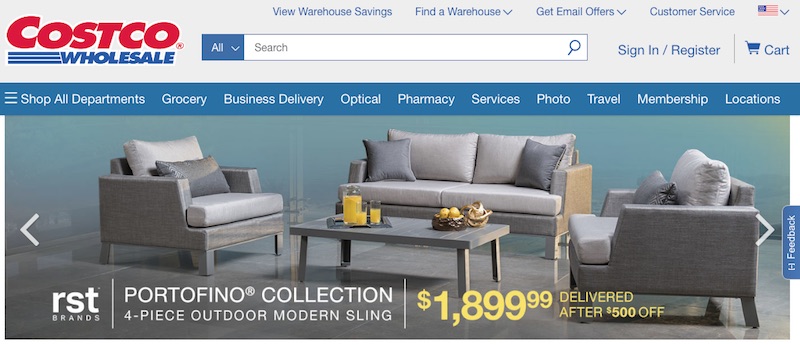
Leading retailers, such as Costco, are adding marketplaces to their ecommerce sites, providing an alternative to Amazon for third-party merchants. Selling on the marketplaces increases fulfillment complexity, however.
There are many marketplace options other than Amazon for merchants. We all know about eBay. Big retailers such Walmart, Costco, Home Depot, Best Buy, Nordstrom, and Dick’s Sporting Goods offer marketplaces, too. These retailers are recruiting third-party sellers.
As merchants expand their presence to retailer-owned marketplaces, order fulfillment demands increase. And, unlike Amazon, these retailers do not offer warehousing and fulfillment services.
In this post, I’ll address fulfillment requirements of retailer-owned marketplaces.
Strict Requirements
These retailers are not messing around. They’re trying to compete with Amazon. They generally impose strict fulfillment guidelines, including one-day turnaround (or less) with outbound orders, as well as rapid returns processing.
To meet these requirements (before applying to sell on a marketplace), merchants must have a solid warehousing and fulfillment operation capable of handling the ebb and flow of orders. Additionally, merchants should consider how they’ll retrieve orders from the marketplaces, and ensure their back-office process can sync, process, and track each shipment.
Another common requirement relates to data security. Retailer-owned marketplaces want to know that your hardware and software is current and you have an appropriate data recovery plan. Be prepared to provide specifics.
Performance Standards
Walmart is selective in approving third-party sellers. Some are disqualified because they’re too small, because they’re not based in the U.S., and even because Walmart has closed down entire product categories to new sellers.
If you’re lucky enough to get approved by retailer marketplaces, it may not last long if you fall below their performance standards. This includes very low tolerance for errors and late orders. Third-party merchants must have technology and processes to maintain accurate stock levels at all times, to get 100 percent of their orders out on time, to get tracking information back to these marketplaces quickly, and to make very few errors along the way.
While these retailers may not handle the warehousing and fulfillment of third-party orders, they still have a say in the process.
For instance, Costco requires its marketplace sellers to use Costco’s shipping accounts or ensure the sellers’ shipping rates are close to Costco’s. Costco and other retailer-marketplaces want to offer free shipping in many cases. They will reimburse third-party sellers for shipping and fulfillment, but only a specific amount for each order. Third-party sellers must therefore ensure that the reimbursement covers their expenses.
Importantly, like Amazon, these retailer-marketplaces consider the buyer to be their customer. In some cases, the packing slips in each order must have that retailer’s name on it, not the third-party seller. The same applies to the shipping label.
New Platforms
Sellers that list on retailer marketplaces are often forced to use new platforms, which could include expenses such as ongoing monthly fees and a setup fee.
For example, Costco requires third-party sellers to use CommerceHub to manage orders from its marketplace. If a merchant sells on multiple channels and uses a separate order management system, it must manage Costco orders separately or integrate the existing system with CommerceHub. Third-party logistics providers will need to integrate with CommerceHub, too.
The more marketplaces a merchant sells on, the more it will rely on automation. Thus, marketplace sellers need an order fulfillment system that accommodates (a) spikes in orders, (b) retailer shipping accounts, and (c) customized packing slips and shipping labels. The system must also push and retrieve data from all marketplace platforms.





